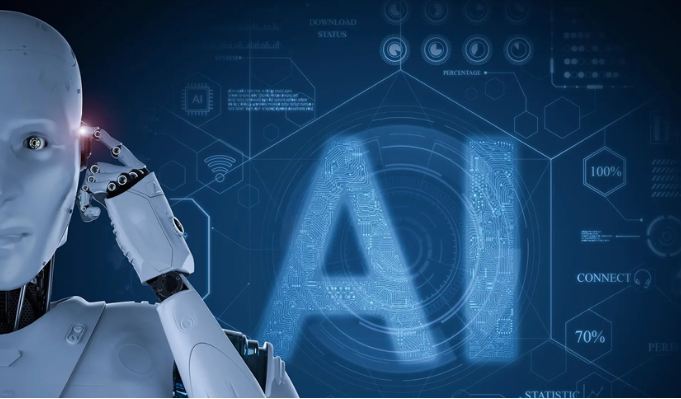Artificial Intelligence, the very phrase evokes images of a future brimming with technological wonders. While the concept of AI has been around for decades, it’s now making its presence felt more profoundly than ever. We stand on the cusp of a new era, one where machines can learn, reason, and make decisions, often surpassing human capabilities.
The rise of Artificial Intelligence is akin to the beginning of a scientific revolution, a transformation poised to redefine the way we live, work, and interact with our world. In this blog, we’ll delve into the essence of AI, its importance in our daily lives, the remarkable scope it holds for the future, and how you can stay relevant in this rapidly evolving landscape.
Understanding Artificial Intelligence
At its core, Artificial Intelligence is about enabling machines to mimic human intelligence, but it goes far beyond mere imitation. AI is a multidisciplinary field encompassing machine learning, natural language processing, and computer vision, among others. In essence, it’s the pursuit of creating systems that can think, learn, and adapt.
Think of your smartphone’s virtual assistant, the recommendations on your favorite streaming platform, or even autonomous vehicles navigating our streets. All of these are made possible by AI, which is already a ubiquitous presence in our lives. Its role is only set to expand as it advances further.
Importance of AI
The importance of AI can’t be overstated. In an era of data overload, AI is the beacon of insight. It empowers industries like healthcare, finance, and transportation to make smarter decisions and streamline operations. By sifting through vast datasets, AI uncovers patterns and trends that might elude human experts, leading to breakthroughs in disease detection, investment strategies, and logistics.
Imagine a world where medical diagnoses are not only more accurate but also faster, where financial fraud is preemptively detected, and where traffic jams become a relic of the past. This is the promise of AI, and its impact on our daily lives is undeniable.
AI’s role in future technology
What excites many is not just AI’s present impact but its potential role in shaping the future. We’re at the brink of a technological revolution where AI is a central driving force. Autonomous vehicles are set to transform the way we travel, smart cities will enhance urban living, and the possibilities for AI in addressing global challenges are staggering.
Climate change, healthcare crises, and resource management all have AI-powered solutions on the horizon. It’s not merely about automation but about using AI as a tool for innovation and change. The future, it seems, belongs to the collaboration between humans and intelligent machines.
Challenges and ethical concerns
However, this immense promise doesn’t come without its challenges and ethical concerns. The more we embrace AI, the more we must grapple with questions of privacy, security, and job displacement. The rise of AI is altering the job landscape, eliminating certain roles through automation while creating new opportunities. Addressing these concerns is critical to ensure that the benefits of AI are widely shared and its drawbacks effectively managed.
How to stay relevant In the era of AI
Amid this AI-driven transformation, staying relevant is crucial. In an age where automation and smart systems are becoming more prevalent, individuals can prepare themselves for the future by focusing on areas that complement AI.
One approach is to enhance digital literacy. Acquiring skills related to data analysis, programming, and AI technology is invaluable. It enables individuals to leverage AI as a tool rather than fear its potential impact on employment.
Additionally, fostering soft skills that are inherently human, such as creativity, emotional intelligence, and critical thinking, can set you apart in a world where AI excels in repetitive and data-driven tasks.
Intrigued? Buckle up for a journey into the world of Artificial Intelligence, its profound significance in our lives and the future, and how you can thrive in this era of rapid technological advancement.

















